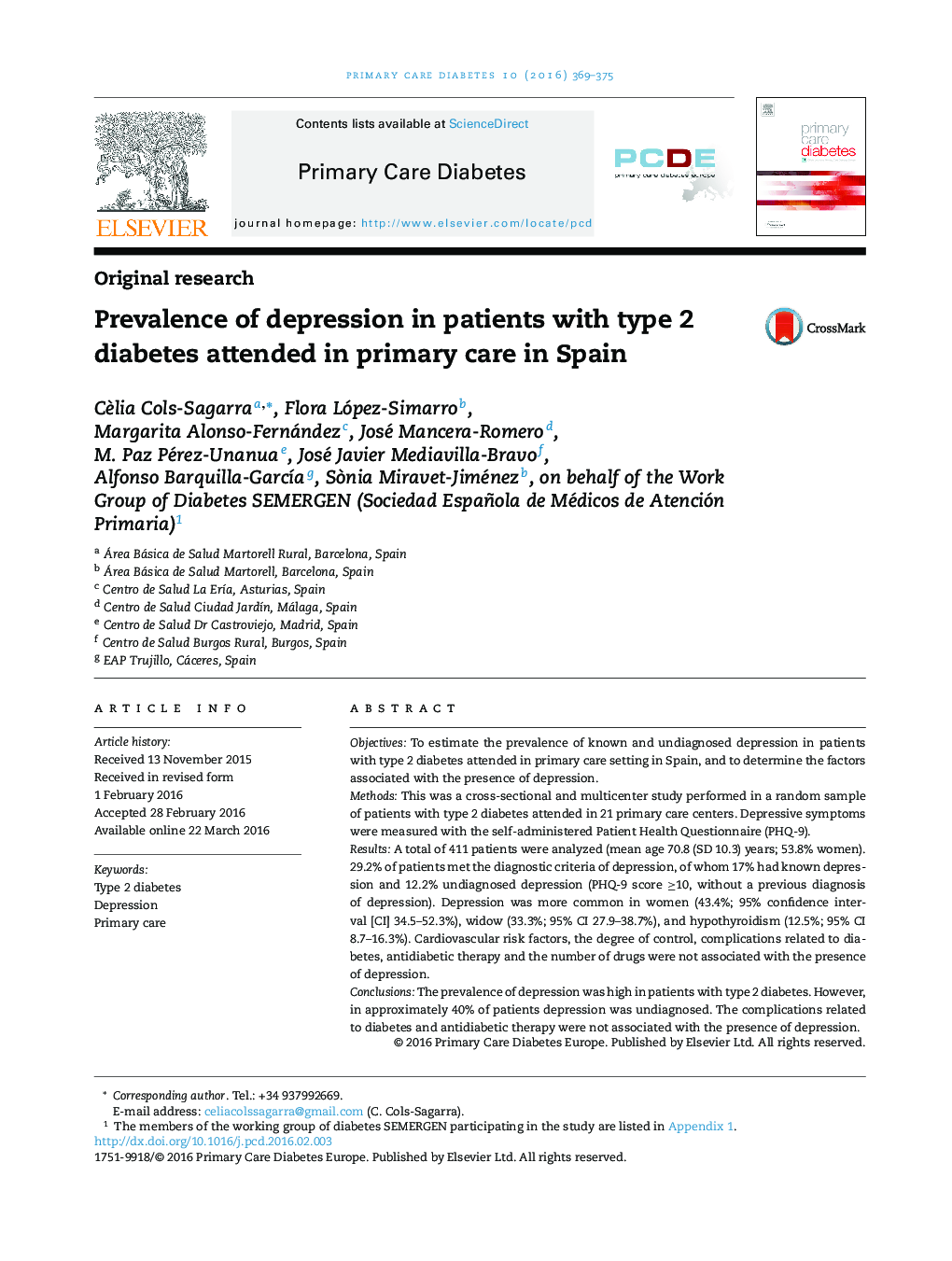| Article ID | Journal | Published Year | Pages | File Type |
|---|---|---|---|---|
| 2679006 | Primary Care Diabetes | 2016 | 7 Pages |
•Undiagnosed depression (occult depression) is highly prevalent.•Antidiabetic drugs are not associated with the presence of depression.•Complications related to diabetes are not associated with depression.•Performing an active search of depression is recommended in type 2 diabetic patients.
ObjectivesTo estimate the prevalence of known and undiagnosed depression in patients with type 2 diabetes attended in primary care setting in Spain, and to determine the factors associated with the presence of depression.MethodsThis was a cross-sectional and multicenter study performed in a random sample of patients with type 2 diabetes attended in 21 primary care centers. Depressive symptoms were measured with the self-administered Patient Health Questionnaire (PHQ-9).ResultsA total of 411 patients were analyzed (mean age 70.8 (SD 10.3) years; 53.8% women). 29.2% of patients met the diagnostic criteria of depression, of whom 17% had known depression and 12.2% undiagnosed depression (PHQ-9 score ≥10, without a previous diagnosis of depression). Depression was more common in women (43.4%; 95% confidence interval [CI] 34.5–52.3%), widow (33.3%; 95% CI 27.9–38.7%), and hypothyroidism (12.5%; 95% CI 8.7–16.3%). Cardiovascular risk factors, the degree of control, complications related to diabetes, antidiabetic therapy and the number of drugs were not associated with the presence of depression.ConclusionsThe prevalence of depression was high in patients with type 2 diabetes. However, in approximately 40% of patients depression was undiagnosed. The complications related to diabetes and antidiabetic therapy were not associated with the presence of depression.
